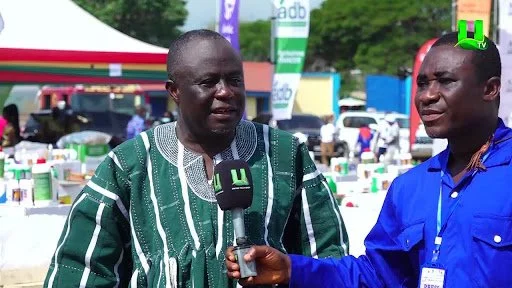Ghanaian Slang: What They Mean and What They Actually Mean
By Charles Aboagye
Photo Source: Yen News
Slang is a beautiful part of Ghanaian culture. These are mostly colorful and unique terms which often carry cultural nuances and meanings. Here are six of those words, what they mean and what the person who uses it actually means to say or do.
1. Chairman/Bossu
Chairman or Bossu (pronounced boss-u) are unisex terms used to describe someone you respect and look up to. It’s often used to address someone in a position of authority, but it can also be used casually among friends to acknowledge them.
When someone keeps calling you chairman/bossu and there’s a bill, they expect you to act “chairmanly” and pick up the tab.
2. Borga
If you come to Ghana, one slang you may be called is “borga” (pronounced bog-ah).
This term is mostly used to describe people who have come from abroad. Ghanaians believe these have come with different experiences, foreign goods, or a different way of life. It is not a derogatory term.
Most times, when a Ghanaian calls you “borga”, they want to share in your different experiences and perspective, so indulge them.
3. Ei!
“Ei” is that slang term that can mean anything depending on context and mood. “Ei!” can be used to express surprise, shock, or astonishment. It’s often used when something unexpected or remarkable happens. If you are haggling price and the seller says “ei,” they are surprised by how low the price is. If you are scared of something happening, you use “ei” to express your fear and it can be used to draw the attention of someone to something. Think of it as similar to saying “Wow!” or “Oh my!” in English. It’s a way to vocalize your reaction to something surprising or extraordinary.
4. Obolo
While commenting on someone’s weight can be considered impolite or hurtful in many cultures, in Ghana, it is the first thing someone might use to identify you if they do not know your name. “Obolo” is a Ghanaian slang term that refers to someone who is chubby or curvy or a large person. In Ghanaian culture, this is not derogatory as most people consider that as a sign of living good and being well-to-do.
5. Chale!
When a Ghanaian calls you “chale”, they consider you a friend or acquaintance. It means buddy, mate or friend. People often use it in casual conversations as a term of endearment or when referring to someone in a relaxed and friendly manner. It’s a versatile word and is commonly used in Ghana to establish rapport and show friendliness.
6. Momo
Momo is an abbreviation for “mobile money “, a mobile payment service widely used by Ghanaians.
While Ghanaians have banking apps and wire transfer services are available , most people choose to use this service. If a Ghana asks you to momo them, they just want you to dash them money.
These Ghanaian slangs reflect the rich culture and diversity of expressions found in Ghana. Whenever you visit Ghana, remember to use some of these slang. You will fit in perfectly.


